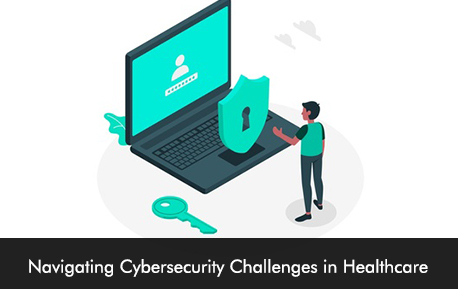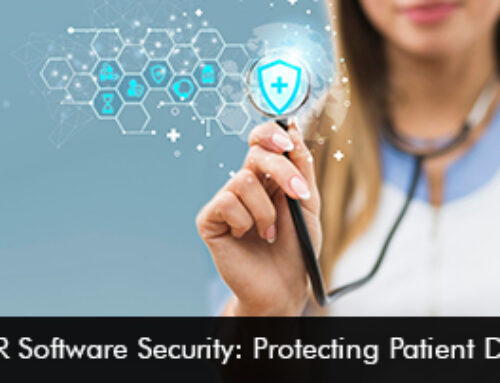Cybersecurity in healthcare has become a major concern for all the relevant stakeholders involved in the healthcare sector. Patient safety and data integrity cannot be compromised at any point. As more and more patient records are stored in the Electronic Medical Records (EMR) software system the threat of technology breaches remains. Healthcare and patient data remains the primary target of cybercriminals and is on the rise since telemedicine software solutions have expanded due to the COVID-19 pandemic. To securely advance medical practices and hospitals need in-breed cybersecurity solutions for end to end encryption of confidential and sensitive patient data. The main question is that how can healthcare organizations manage all security concerns and considerations? Fortunately, providers can meet cybersecurity standards by having a powerful cybersecurity plan.
Tips to protect patient data from cyber crimes
Hospitals, doctor’s offices, and clinics are continuously exposed to cyber-crimes and threats due to ransomware attacks. This puts patient data at stake however organizations can reduce the chances of cyber-attacks and crimes by incorporating the following strategies.
- Staff needs to be trained on the latest cybersecurity protocols – Your healthcare organization can offer training to get everyone on the same page to keep up with the latest cybersecurity protocols. Staff members who follow appropriate data protocols need to be appreciated, you need to teach employees about the importance of cybersecurity which can be done through free resources.
- Employees should be encouraged to bring their own devices – Medical organizations can establish a strict policy where staff members need to bring their own devices to work on. This policy would ensure network security within the organization. The hospital IT staff needs to provide a list of apps that protect devices from malware attacks and also regularly update these apps.
- Provide controlled access to patient records and data – It is the healthcare organization’s responsibility to ensure round-the-clock safety of patient data and if they fail the consequences can be harsh such as hackers can commit identity theft and take funds from bank accounts. It is advised that only authorized access is provided to certain patient data by the security team at your office. Systems can also be audited and checked regularly to monitor and verify the user and what they accessed.
- Take updates seriously – You need to ensure that devices are updated regularly as they include security and safety fixes. The hospital IT department has to establish a plan to monitor and regularly update any devices that are being used at the facility. This will keep technology breaches at bay and keep security tight.
- Create regular backups – Your organization must have a contingency plan for unexpected events. Files need to be backed up regularly so they can be retrieved and restored without much effort. The back-up data and information can then be stored away from the main system.
Key Takeaway
The above tips can maintain the privacy of patient data and prevent the medical organizations from going in a loss and being in a tight spot. Furthermore, security is being enhanced with Blockchain technology which has revolutionized healthcare cybersecurity by distributing information on a public ledger. Blockchain is considered secure and a better means of protecting private information. Also one of the best ways to protect data is using an EHR software solution that is ONC certified.







